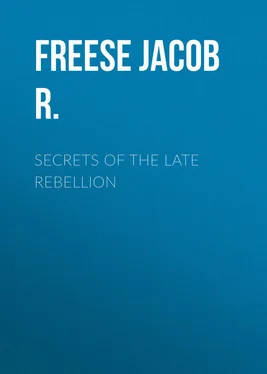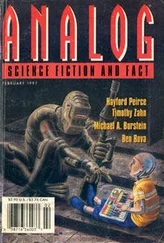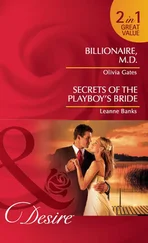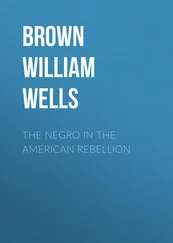Jacob Freese - Secrets of the Late Rebellion
Здесь есть возможность читать онлайн «Jacob Freese - Secrets of the Late Rebellion» — ознакомительный отрывок электронной книги совершенно бесплатно, а после прочтения отрывка купить полную версию. В некоторых случаях можно слушать аудио, скачать через торрент в формате fb2 и присутствует краткое содержание. Жанр: foreign_antique, foreign_prose, на английском языке. Описание произведения, (предисловие) а так же отзывы посетителей доступны на портале библиотеки ЛибКат.
- Название:Secrets of the Late Rebellion
- Автор:
- Жанр:
- Год:неизвестен
- ISBN:нет данных
- Рейтинг книги:3 / 5. Голосов: 1
-
Избранное:Добавить в избранное
- Отзывы:
-
Ваша оценка:
- 60
- 1
- 2
- 3
- 4
- 5
Secrets of the Late Rebellion: краткое содержание, описание и аннотация
Предлагаем к чтению аннотацию, описание, краткое содержание или предисловие (зависит от того, что написал сам автор книги «Secrets of the Late Rebellion»). Если вы не нашли необходимую информацию о книге — напишите в комментариях, мы постараемся отыскать её.
Secrets of the Late Rebellion — читать онлайн ознакомительный отрывок
Ниже представлен текст книги, разбитый по страницам. Система сохранения места последней прочитанной страницы, позволяет с удобством читать онлайн бесплатно книгу «Secrets of the Late Rebellion», без необходимости каждый раз заново искать на чём Вы остановились. Поставьте закладку, и сможете в любой момент перейти на страницу, на которой закончили чтение.
Интервал:
Закладка:
Lord Brewerton remained in Richmond after his return about one week, in consultation with President Davis and his cabinet; Colonel Abercrombie was then telegraphed for; all the needed arrangements were made; the two left Richmond, and in less than a week were at the English embassy at Washington. Their return was by the same route as that on which they had gone; walking and riding about the same, except that they missed this time a ride behind old Jarrett's blind mule; nor did they have the luxury of spending a whole day at Aunt Rachel's negro hut. Lord Brewerton told Lord Lyons all about the incidents of their trip (as well as all that he had seen and learned of the Confederacy), and the two had over them and their wine many a hearty laugh.
It so happened that on the evening following the return of Lord Brewerton and Colonel Abercrombie to Washington, there was to be a grand reception at the White House. The lord invited the Colonel to accompany him to this reception, and to be introduced as his friend. The Colonel hesitated at first, as he feared he might possibly be recognized by some of his old Washington acquaintances, or by some of Baker's secret detectives. He finally consented, however, and, in the disguise of a "French exquisite," did attend President Lincoln's grand reception, and saw and heard all that was to be seen and heard on such occasions. Of course, Lord Brewerton was the observed of all observers, and was recognized by all (save those who knew to the contrary) as a staunch friend to the Union. A few days after, Lord Brewerton and the Colonel went to Philadelphia, where they met a party of gentlemen at Dr. Charles Howell's, and where future business arrangements were talked over and agreed upon. From here the lord went to New York, while the Colonel returned to Washington and from thence to Richmond.
Thus we finish the record of the visit of one English peer to the Southern Confederacy; but this, by no means, constitutes the whole of such visits during the war. In January, 1863, Lord Talbot was at Charleston, having reached there by the way of Nassau. He had a son who was a colonel in the Confederate army, and who continued in the service until the close of the war. In November, 1863, Lords Harvey and Kartwright were at Richmond; they, too, having reached the Confederate States by the way of Nassau. Major Hodges, one of General Beauregard's staff, was the son of an English lord, and did faithful service until the war closed. Adjutant-General Cooper said that upon the army rolls were the names of scores who were either the sons of, or nearly related to, English peers. Lord Cavendish, who was in very bad health, remained at Nassau during most of the time that the war continued, rendering such aid to the Confederacy as lay in his power. Indeed, the immense hotel at Nassau was crowded with English and Northern sympathizers with the South nearly all the while, from the beginning to the end of the war, watching chances for running the blockade, and otherwise aiding the Confederacy in whatever way they could. These gentlemen, however, while friends to the Confederacy, were still more friends to their own pockets. With them "cotton was king," and of this king they were trying to get as much in their pockets as possible, while English ministers and English consuls were aiding them to the extent of their ability. This was true not only at Washington and at Nassau, but generally with British ministers and British consuls throughout the world, which fact, added to what we have related of Lord Brewerton, who, doubtless, represented many other persons besides himself, and many other interests besides his own, fully justifies, as we think, the caption given to this chapter, Nobility after the Nuggets – Diplomacy Prompting the Actors.
CHAPTER VI. IN TIGHT PLACES AND OUT. SHREWDNESS PULLING THE WIRES
THE plan of our work admits of only one more chapter on the subject of running the land blockade, though, if space permitted, the entire volume might be filled with incidents connected with this one service. This chapter, therefore, must embrace a variety of incidents.
On one of the trips, Colonel Abercrombie conducted Mr. Charles R. Dangerfield from Washington to Richmond, and return. Mr. Dangerfield was a large manufacturer, or the agent of manufacturers, of English arms, accoutrements, etc., and his object in visiting Richmond was to make contracts with the Confederacy in exchange for cotton. Nothing of special note occurred on the way to Richmond, except that, while lying at the negro hut all day, two men came to the door, and asked "Aunt Jemima" if Colonel Abercrombie was not there? This Mr. Dangerfield heard, and it frightened him almost out of his wits. "Now Grant's men have us!" said he, and, springing up from where he lay, he was ready to surrender at once; but the military experience of the Colonel made him cooler and more courageous than the Englishman, and he, instead of surrendering, was getting ready to sell his life as dearly as possible, when "Aunt Jemima" called out, "All's right, honey, all's right! dese be your guides, Mas'er Colonel; all's right!" Had a ten-thousand ton weight been lifted from Mr. Dangerfield's breast, he could not have felt more relieved. He was ready to dance a hornpipe then and there, and would have done it, had he not been too old, fat, and clumsy for such a youthful sport. From Richmond, Mr. Dangerfield visited all the larger cities, and all the cotton-storing places of the Confederacy. On his return to Richmond he made contracts with the government to his entire satisfaction, and in due time returned to Washington, New York, and thence to London.
At another time the Colonel conducted another English manufacturer, Mr. Francis Willis, across the lines and back. He, like Mr. Dangerfield, visited the principal points in the Confederacy, and, on his return to Richmond, made contracts to furnish arms, accoutrements, saddles, clothing, etc., in exchange for cotton.
There were others who were passengers on this line, at various times; but as their object was to see friends or attend to domestic affairs, and had no direct connection with the war, we think it unnecessary to particularize them.
On one of the trips Colonel Abercrombie was arrested as a spy – though his duties, and those of Colonel Killgore's, were as foreign to those of a spy as one thing can be foreign to another – and as there were incidents connected with the arrest and escape never heretofore known, we will now relate them.
The Colonel was on his way from Richmond to Washington. Had reached Great Falls in safety, and was about half way between that point and Georgetown, when a sentinel suddenly called, "Halt! stand, or I'll fire." The Colonel, who was in the disguise of a farmer, tried to explain to the sentinel that he was a farmer, living near Georgetown; that he had been up to Garrett & Morse's store to see a friend, and was now on his way back; that he was an uncompromising " Union man," etc., etc.; but the sentinel's only reply was that his orders were to halt and detain any one who attempted to pass his post, and that the Colonel must stand precisely where halted until the corporal came around, and not move a step forward or backward, or he would fire upon him. The Colonel saw that he had a sentinel to deal with who could not be either cajoled or bribed, and that he could do nothing else than await the coming of the corporal, and then try his arts upon him. Could he have got near the sentinel, he would have disarmed him and escaped, but this was impossible. When the corporal came around to relieve the guard the Colonel told him the same story he had told the sentinel; but he seemed to doubt the story, and told the Colonel he must "fall in" and accompany them to the Captain's headquarters, about a half-mile distant. On reaching there the Colonel repeated the same old story, to all of which the Captain listened attentively and respectfully. The Captain had just eaten his supper, and, learning from the Colonel that he had not yet had his, asked him to take a seat at the table and help himself. While the Colonel was eating, the Captain narrowly observed him, and pretty soon cried out, "Yes! I see you are a farmer from the way you handle your knife and fork! A pretty farmer you are, to be sure!" The Colonel was nonplussed for a moment and could make no reply; but after awhile managed to say that he "could n't see why a farmer could not handle a knife and fork just as well as anybody else." He was caught, fairly caught, by his "society manners," and the more he talked, the better satisfied the Captain became that he was not a farmer, and might be a spy. He was accordingly sent, that same night, to the headquarters of the Eleventh Pennsylvania regiment, and there put in the guard-house. Next morning the colonel of this regiment sent him to General Wilson's headquarters, near by, who, after some questions, sent him back to the guard-house. The next night Colonel Abercrombie made an attempt to escape, and nearly succeeded. This being reported to General Wilson, he ordered a heavy ball and chain to be strongly riveted to the Colonel's leg. Matters now began to look desperate; for, while the Colonel had no fear of being condemned as a spy, he was ready to do anything, rather than be brought before a court-martial and recognized . He bethought himself of some medicine he always carried with him. Of this he took a dose, and soon had a most violent diarrhoea. He now could ask, and did ask, to be sent to a hospital, and next day was sent to the Lincoln Hospital, near Georgetown. It changed that on the next couch to his in the hospital lay a Confederate captain, named Lawrence Norton, of Georgia. The two soon became acquainted. The Colonel told the Captain that if by any means the ball and chain could be taken from his leg, he could escape from the hospital. The Captain told his wife this when she visited him next day; the wife became immediately interested, and soon procured and brought to her husband a watch-spring file; the Captain that same night so filed the clasp, which held the ball and chain to the Colonel's ankle, that it could be slipped off at any moment. The Colonel watched the surgeon when he came into the hospital next day, and managed to slip a pass from the surgeon's overcoat pocket while it lay upon a stand near his bed. With this pass and two empty bottles in his hand, he rushed by the sentinel at the door, on the plea that he was in great haste to bring medicines which the doctor had just sent him after. Once outside the building, he sprang over a cemetery fence, and from thenceforth allowed no grass to grow under his feet until he was safe at Ben Beveridge's hotel. Here, of course, there was great rejoicing at the Colonel's wonderful escape; but, fearing pursuit, it was thought best that the Colonel should proceed at once to Baltimore, and from thence to Philadelphia. It was deemed best, too, that he should not start from the Washington depot, lest detectives be on the watch there for him. Accordingly, Ben ordered up his own spanking team of bays, and before daybreak had the Colonel at the Bladensburg station, where he took the first train that came along for Baltimore. Fearing, however, to go into the Baltimore depot, lest detectives might be there on the watch for him, the Colonel got off the train at the Relay House, and gave a man a twenty-dollar gold piece to drive him into Baltimore, a distance of about thirteen miles. He went direct to the Fountain Hotel, in Light Street, where he remained carefully concealed for several days, only seeing Mr. Thomas, Mr. Wilson, and such others as he knew to be firm friends of the Southern cause. Then he went to Philadelphia and remained at Dr. Howell's for about two weeks.
Читать дальшеИнтервал:
Закладка:
Похожие книги на «Secrets of the Late Rebellion»
Представляем Вашему вниманию похожие книги на «Secrets of the Late Rebellion» списком для выбора. Мы отобрали схожую по названию и смыслу литературу в надежде предоставить читателям больше вариантов отыскать новые, интересные, ещё непрочитанные произведения.
Обсуждение, отзывы о книге «Secrets of the Late Rebellion» и просто собственные мнения читателей. Оставьте ваши комментарии, напишите, что Вы думаете о произведении, его смысле или главных героях. Укажите что конкретно понравилось, а что нет, и почему Вы так считаете.












